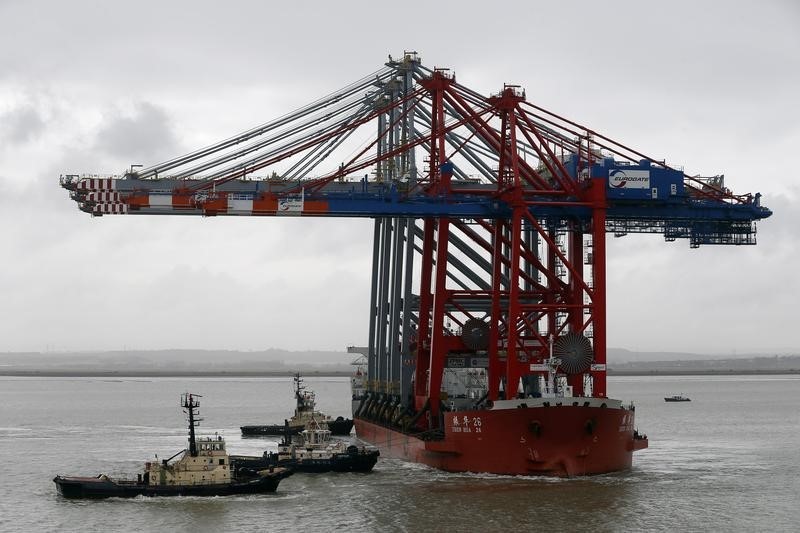LONDON, (Reuters) - Britain's goods trade deficit narrowed in October to its lowest level in seven months, helped by lower fuel imports and a slight rise in exports, official data showed on Wednesday.
The Office for National Statistics said the deficit shrank slightly less than expected to 9.620 billion pounds from 10.506 billion pounds in September, when a rise in oil helped to widen the shortfall.
Economists had forecast a gap of 9.5 billion pounds in October.
Exports in the month edged up to 24.336 billion pounds, helped by sales of silver to India, while imports fell by nearly 700 million pounds.
The ONS said a drop in oil imports was the main driver for this fall, possibly reflecting return to production in the North Sea, where maintenance hit output over the summer.
Britain has relied on domestic demand to propel its economic recovery since the middle of last year. A sharp slowdown in the euro zone in recent months has added to problems hampering the government's plan to focus the economy more on exports.
Britain's goods trade deficit with countries in the 28-nation European Union narrowed to 6.038 billion pounds, down by more than 400 million pounds, as exports picked up slightly despite concerns about that the euro zone's weakness would hurt demand.
Data released on Tuesday showed German imports posted their steepest drop in almost two years in October after a strong rise the previous month.
The shortfall with non-EU countries narrowed more than expected to 3.582 billion pounds from 4.060 billion pounds in September, compared with forecasts for a gap of 3.8 billion pounds.
Including Britain's surplus in trade in services, the overall trade deficit narrowed to 2.024 billion pounds in October, down nearly 800 million pounds and hitting its lowest level since March.
Britain's economy grew 0.7 percent in the third quarter of this year, although its trade performance weighed on activity.
The ONS said trade would represent less of a drag in the final reading of economic growth because of revisions to previous months, although it could say how much the change would be.

Britain's economy still looks on course to expand at a strong pace in 2015, but raising interest rates now would pose a "huge risk" to its recovery, the British Chambers of Commerce said on Wednesday.
(Reporting by Andy Bruce and William Schomberg)